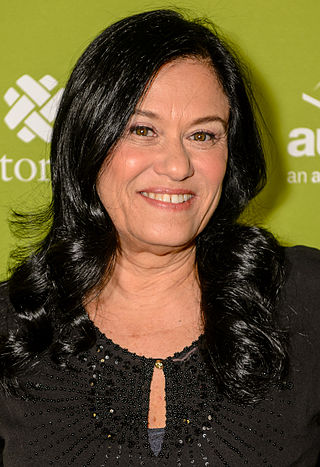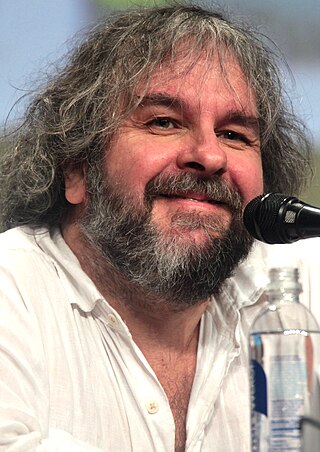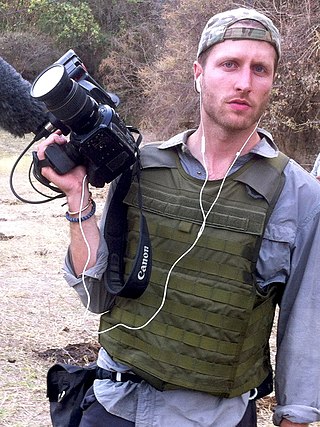Related Research Articles

Theodor Seuss Geisel was an American children's author and cartoonist. He is known for his work writing and illustrating more than 60 books under the pen name Dr. Seuss. His work includes many of the most popular children's books of all time, selling over 600 million copies and being translated into more than 20 languages by the time of his death.
A mockumentary is a type of film or television show depicting fictional events, but presented as a documentary which in itself is a subset of a faux-documentary style of film-making.

Milli Vanilli was a German R&B music act from Munich. The act was created in 1988 by Frank Farian, founder of Boney M., and consisted of Fab Morvan and Rob Pilatus as the lip-syncing performers, with the two actual main studio singers, Brad Howell and John Davis, and studio singers Charles Shaw, Jodie Rocco, and Linda Rocco, with an unrelated touring band.

A newsreel is a form of short documentary film, containing news stories and items of topical interest, that was prevalent between the 1910s and the mid 1970s. Typically presented in a cinema, newsreels were a source of current affairs, information, and entertainment for millions of moviegoers. Newsreels were typically exhibited preceding a feature film, but there were also dedicated newsreel theaters in many major cities in the 1930s and ’40s, and some large city cinemas also included a smaller theaterette where newsreels were screened continuously throughout the day.

Karel Reisz was a Czech-born British filmmaker and film critic, one of the pioneers of the new realist strain in British cinema during the 1950s and 1960s. Two of the best-known films he directed are Saturday Night and Sunday Morning (1960), a classic of kitchen sink realism, and the romantic period drama The French Lieutenant's Woman (1981).

Georgina Beyer was a New Zealand Labour Party politician who represented Wairarapa in the Parliament of New Zealand from 1999 to 2005, after serving as mayor of Carterton from 1995 to 1999. Beyer was the world's first openly transgender mayor, and the world's first openly transgender member of parliament. As a member of the Labour Party Beyer supported progressive policies including prostitution law reform, civil unions, anti-discrimination laws, and the promotion of Māori rights. She resigned in 2007, and, in 2014, unsuccessfully stood for election on behalf of the Mana Party.

Anne Perry was a British writer. She was the author of the Thomas and Charlotte Pitt and William Monk series of historical detective fiction.

Kevin Glyn Buchanan Macdonald is a Scottish film director. His films include One Day in September (1999), a documentary about the 1972 murder of 11 Israeli athletes, which won him the Academy Award for Best Documentary Feature, the climbing documentary Touching the Void (2003), the drama The Last King of Scotland (2006), the political thriller State of Play (2009), the Bob Marley documentary Marley (2012), the post-apocalyptic drama How I Live Now (2013), the thriller Black Sea (2014), the Whitney Houston documentary Whitney (2018), and the legal drama film The Mauritanian (2021).

Barbara Kopple is an American film director known primarily for her documentary work. She is credited with pioneering a renaissance of cinema vérité, and bringing the historic french style to a modern American audience. She has won two Academy Awards, for Harlan County, USA (1977), about a Kentucky miners' strike, and for American Dream (1991), the story of the 1985–86 Hormel strike in Austin, Minnesota, making her the first woman to win two Oscars in the Best Documentary category.

Lourdes Portillo was a Mexican film director, producer, and writer. The political perspectives of Portillo's films have been described as "nuanced" and versed with a point of view balanced by her experience as a lesbian and Chicana woman. Portillo films have been widely studied and analyzed, particularly by scholars in the field of Chicano studies.

Taika David Cohen, known professionally as Taika Waititi, is a New Zealand filmmaker, actor and comedian. He is known for directing quirky comedy films and has expanded his career as a voice actor and producer on numerous projects. He has received numerous accolades including an Academy Award, a BAFTA Award and a Grammy Award, as well as two nominations for the Primetime Emmy Award. Time magazine named him one of the 100 most influential people in the world in 2022.

The Crucified Soldier was the widespread story of an Allied soldier serving in the Canadian Corps who may have been crucified with bayonets on a barn door or a tree, while fighting on the Western Front during World War I. Three witnesses said they saw an unidentified crucified Canadian soldier near the battlefield of Ypres, Belgium, on or around 24 April 1915, but eyewitness accounts were somewhat contradictory, no crucified body was recovered and the identity of the alleged crucified soldier was not discovered at the time.
Bryan Bruce is a New Zealand documentary maker and author.

Sir Peter Robert Jackson is a New Zealand film director, screenwriter and producer. He is best known as the director, writer and producer of the Lord of the Rings trilogy (2001–2003) and the Hobbit trilogy (2012–2014), both of which are adapted from the novels of the same name by J. R. R. Tolkien. Other notable films include the critically lauded drama Heavenly Creatures (1994), the horror comedy The Frighteners (1996), the epic monster remake film King Kong (2005), the World War I documentary film They Shall Not Grow Old (2018) and the documentary The Beatles: Get Back (2021). He is the fourth-highest-grossing film director of all-time, his films having made over $6.5 billion worldwide.
Margaret Gipsy Moth was a photojournalist who worked for CNN.
Stephen Walker is a British author and filmmaker. He was educated at Oxford and Harvard universities. He has directed or produced around 30 films, and was twice voted in the top 10 directors in the UK in Broadcast magazine. His production company is Walker George Films. His author website is Stephen Walker Beyond.

David Zeiger is an American film director, writer and producer. He is most well known for the documentary Sir! No Sir! (2005), which is the only full-length film chronicling the extensive antiwar and resistance activity of U.S. troops during the Vietnam War; and for Senior Year (2002), a 13-part PBS documentary series about the senior year of a group of students at Fairfax High, the most diverse school in Los Angeles.

Matthew Heineman is an American documentary filmmaker, director, and producer. His inspiration and fascination with American history led him to early success with the documentary film Cartel Land, which was nominated for an Academy Award for Best Documentary Feature Film, a BAFTA Award for Best Documentary, and won three Primetime Emmy Awards.
Becoming Led Zeppelin is a forthcoming documentary film directed by Bernard MacMahon which charts the formation and early years of Led Zeppelin. The film is an independent production made with the full co-operation of the band and represents the first time Led Zeppelin have agreed to participate in a biographical documentary. A work-in-progress was screened at the 78th Venice Film Festival in 2021 to a 10-minute standing ovation.
Robin Laing is a New Zealand film producer. She is the founding president of WIFT in New Zealand and also a founding chair of The New Zealand Film & Television School.
References
- 1 2 "War Stories Our Mothers Never Told Us". NZ On Screen . Ngā Taonga Sound & Vision . Retrieved 31 March 2023.
- ↑ Martin, Helen; Edwards, Sam (1997). New Zealand film, 1912-1996. Auckland ; Melbourne ; Oxford :Oxford University Press. ISBN 0-19-558336-1 . Retrieved 13 January 2023.
- 1 2 "War Stories Our Mothers Never Told Us". British Film Institute. 1995. Retrieved 1 April 2023.